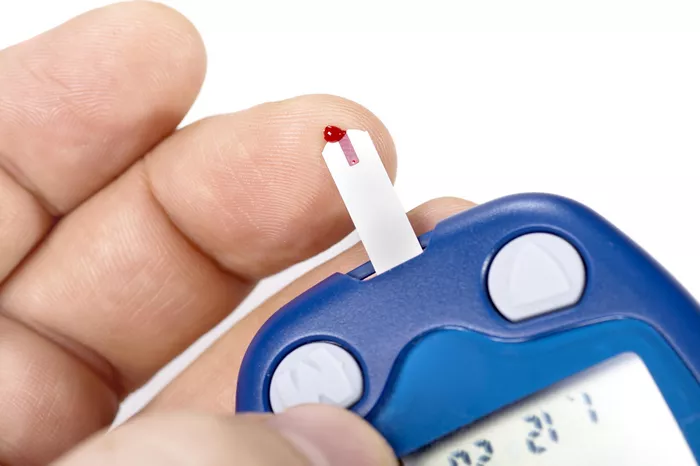Diabetes, a chronic metabolic disorder characterized by elevated blood sugar levels, affects millions of people worldwide, posing significant health challenges and complications if left uncontrolled.
However, there is growing interest and hope surrounding the possibility of curing diabetes, particularly when detected early.
In this comprehensive guide, we delve into the question: Can early diabetes be cured? We explore the underlying mechanisms, treatment approaches, and emerging research findings to shed light on this important topic and provide hope for individuals grappling with this condition.
Understanding Early Diabetes
Early diabetes, often referred to as prediabetes or impaired glucose tolerance, represents a critical window of opportunity for intervention and prevention before the onset of full-blown diabetes.
Prediabetes is characterized by higher-than-normal blood sugar levels, but not yet at the level to be diagnosed as type 2 diabetes. Individuals with prediabetes are at increased risk of developing type 2 diabetes, heart disease, and other complications if left untreated.
However, the early stage of the disease also offers a unique opportunity for lifestyle modifications, medical interventions, and preventive measures to reverse or delay its progression.
Can Early Diabetes Be Cured?
The concept of curing early diabetes is a topic of ongoing research and debate within the medical community. While there is no one-size-fits-all answer, emerging evidence suggests that early intervention through lifestyle modifications, medication, and other strategies can effectively reverse prediabetes and prevent the onset of type 2 diabetes.
Several key factors contribute to the potential for curing early diabetes:
1. Lifestyle Modifications:
Lifestyle interventions, including changes in diet, exercise, and weight management, are among the most effective strategies for reversing prediabetes and preventing type 2 diabetes.
Studies have shown that adopting a healthy diet rich in fruits, vegetables, whole grains, and lean proteins, combined with regular physical activity and weight loss, can significantly improve insulin sensitivity, lower blood sugar levels, and reduce the risk of progressing to diabetes.
2. Medication:
In addition to lifestyle modifications, certain medications may be prescribed to individuals with prediabetes to help lower blood sugar levels and improve insulin sensitivity.
Metformin, a commonly prescribed medication for type 2 diabetes, has been shown to be effective in reducing the risk of developing diabetes in people with prediabetes, particularly those who are overweight or obese.
Other medications, such as thiazolidinediones and alpha-glucosidase inhibitors, may also be used in select cases.
3. Bariatric Surgery:
Bariatric surgery, a surgical procedure to promote weight loss, has been shown to have profound effects on metabolic health, including improvements in insulin sensitivity and blood sugar control.
While bariatric surgery is typically reserved for individuals with severe obesity or uncontrolled type 2 diabetes, some studies have demonstrated its efficacy in reversing prediabetes and preventing the progression to diabetes in select patients.
The Power of Early Intervention
Prevention is the cornerstone of efforts to cure early diabetes and stem the rising tide of type 2 diabetes worldwide. By identifying individuals at high risk of developing diabetes through screening and early detection, healthcare providers can implement targeted interventions to halt the progression of the disease and improve long-term outcomes.
Key strategies for preventing early diabetes and reducing the risk of developing type 2 diabetes include:
1. Screening and Diagnosis:
Routine screening for prediabetes and diabetes is essential for early detection and intervention. Healthcare providers may use fasting blood glucose tests, oral glucose tolerance tests, or hemoglobin A1c tests to diagnose prediabetes and diabetes and identify individuals who may benefit from preventive measures.
2. Education and Awareness:
Education and awareness initiatives aimed at promoting healthy lifestyle behaviors, such as regular physical activity, balanced nutrition, and weight management, can empower individuals to take control of their health and reduce their risk of developing diabetes.
3. Collaborative Care:
Collaborative care models that involve multidisciplinary healthcare teams, including physicians, nurses, dietitians, and exercise specialists, can provide comprehensive support and guidance to individuals with prediabetes or at risk of developing diabetes.
By addressing the complex interplay of genetic, environmental, and lifestyle factors contributing to diabetes risk, collaborative care approaches can enhance adherence to preventive measures and improve outcomes.
Hope on the Horizon
While the quest to cure early diabetes is ongoing, promising research and innovations offer hope for individuals affected by this condition.
Advances in genetic research, precision medicine, and personalized interventions hold the potential to revolutionize diabetes care and transform the landscape of prevention and treatment.
Clinical trials investigating novel therapies, such as stem cell transplantation, immunotherapy, and gene editing techniques, offer exciting possibilities for curing diabetes and restoring pancreatic function in the future.
Conclusion
In conclusion, while the question of whether early diabetes can be cured remains complex and multifaceted, there is reason for optimism and hope.
Through early detection, targeted interventions, and collaborative efforts, individuals with prediabetes or at risk of developing diabetes can take proactive steps to reverse or delay the progression of the disease and improve their long-term health outcomes.
By embracing lifestyle modifications, leveraging medical advancements, and advocating for greater awareness and support, we can collectively work towards a future where diabetes is no longer a chronic condition, but a conquerable challenge.

























